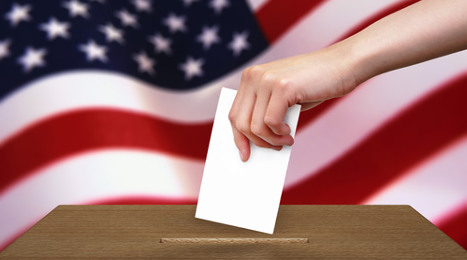58 percent of voters in 8 key states want CFPB run by commission

By subscribing, you agree to receive communications from Auto Remarketing and our partners in accordance with our Privacy Policy. We may share your information with select partners and sponsors who may contact you about their products and services. You may unsubscribe at any time.
WASHINGTON, D.C. –
While the latest U.S. House proposal to modify the Consumer Financial Protection Bureau keeps the agency overseen by a single director, it appears the sentiment of more than just industry supporters within the Capital Beltway is strong for the bureau to be supervised by a multiple-member panel.
According to a news release delivered on Monday, 58 percent of registered voters in key battleground states say the CFPB should be run by a bipartisan commission, according to a Morning Consult poll commissioned by the Consumer Bankers Association (CBA), the Independent Community Bankers of America (ICBA), and the American Land Title Association (ALTA).
The poll, which found that just 14 percent said the CFPB should keep its current structure, shows that consumers support structural changes at the bureau, according to the survey orchestrators.
The May poll of voters in Indiana, Maine, Michigan, Missouri, Montana, North Dakota, Ohio and West Virginia revealed three in five voters said a commission would lead to consumer protections that are fairer, more accountable, more representative and more transparent.
“CBA and its members have long championed what the poll results revealed: a bipartisan commission at the CFPB would increase accountability, fairness and transparency,” CBA president and chief executive officer Richard Hunt said.
“With the 2018 elections coming up, members of Congress in key battleground states may find these results useful, as voters, regardless of party affiliation, believe the best way forward for consumers and small businesses is through a commission made up of a diverse and bipartisan group of experts similar to that of the FDIC. Now’s the time for lawmakers to act,” Hunt continued.
Subscribe to Auto Remarketing to stay informed and stay ahead.
By subscribing, you agree to receive communications from Auto Remarketing and our partners in accordance with our Privacy Policy. We may share your information with select partners and sponsors who may contact you about their products and services. You may unsubscribe at any time.
Along with 58 percent of surveyed voters supporting establishing a bipartisan commission at the CFPB, the poll contained several other key aggregate findings, including:
—By a 3-1 margin, these voters prefer a bipartisan commission over a single director.
—Only 14 percent of respondents said they believe the CFPB should be left the way it is now.
—By a 4-1 margin, voters agree the CFPB should be structured as a commission like the Federal Deposit Insurance Corp. (FDIC).
—More than half of voters believe a commission would help consumers and small businesses.
—Three in five voters said a commission would make the CFPB fairer (63 percent), more representative (62 percent), more accountable (62 percent) and more transparent (60 percent).
—57 percent said the CFPB’s authority to supervise financial institutions, write rules and enforce penalties is too important to be controlled by a single director.
—59 percent also said a commission would better position the CFPB to help consumers over the long run.
“The survey is clear on the consumer’s preference to replace the CFPB’s single-director governing structure with a bipartisan commission — a longstanding ICBA policy,” ICBA president and CEO Camden Fine said. “This poll bolsters our position that Congress should implement reforms to make the bureau more balanced and accountable to the consumers it is charged with serving.”
Looking at the survey data by state revealed several other interesting points, including:
—In Indiana, by a 4-1 margin, voters agree the CFPB should be structured as a commission like the FDIC.
—In Ohio, by a 3-1 margin, voters prefer a bipartisan commission over a single director.
—In Maine, 63 percent of voters support establishing a bipartisan commission at the CFPB.
—In Michigan, voters said a commission would make the CFPB fairer (62 percent), more representative (63 percent), more accountable (62 percent) and more transparent (60 percent).
—In Missouri, voters said a commission would make the CFPB fairer (61 percent), more representative (61 percent), more accountable (62 percent) and more transparent (58 percent).
—In Montana, 60 percent of voters support establishing a bipartisan commission at the CFPB.
—In North Dakota, by a 4-1 margin, voters prefer a bipartisan commission over a sole director.
—In West Virginia, three out of five voters believe a commission would help consumers and small businesses.
“It’s hard to find any policy position in Washington that a majority of Americans agree on,” ALTA chief executive officer Michelle Korsmo said. “So when 58 percent of consumers said the CFPB’s authority to supervise financial institutions, write rules and enforce penalties is too important to be controlled by a single director, Congress should listen to them.”
Earlier this month, the House Financial Services Committee passed the Financial CHOICE Act 2.0 — the measure that would greatly modify the Dodd-Frank Act and the Consumer Financial Protection Bureau.
The committee passed the proposal along party lines by a 34-26 vote with all Democratic lawmakers opposing and all Republican members supporting the plan crafted by chairman Jeb Hensarling, who wants to make a wide array of changes, including:
—Allowing the sole director to be removed at will by the president
—Removing the bureau’s supervisory authority
—Limiting the CFPB’s enforcement authority to enumerated statutes
—Removing its unfair, deceptive, and abusive acts or practices (UDAAP) authority
—Repealing mandatory advisory boards and market monitoring authority


